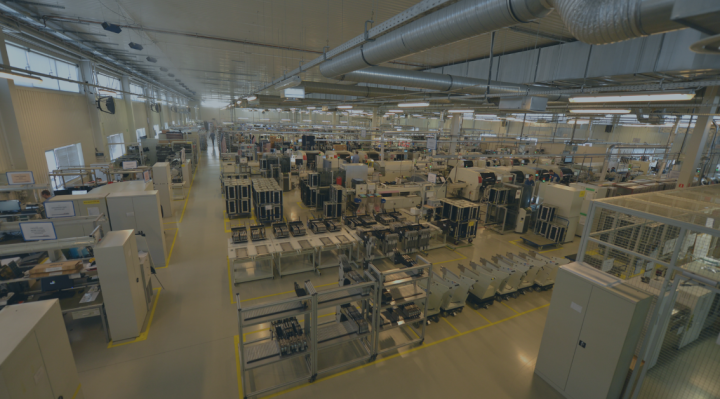Electronics manufacturing has been developing dynamically for several years. The electronics manufacturing industry is changing very quickly. This means the need for continuous improvement among EMS and immediate adaptation to the demands of the electronics market.
While various changes have been made so far, there are a few that will continue to have an impact on the development trends in the electronics manufacturing industry. Because of high influence of these aspects on the industry, we should be aware of how they may affect its operations and direction of development.
1. Rising demand for electronics
In the broadly understood industry and in the consumer market, increasing number of products contain more or less advanced electronics. The development of the Internet of Things and electromobility strengthens the dependence of products on electronic components.
Fast, often rapid technological development and relatively short product life cycles mean that OEMs do not have time to build their own manufacturing competences. The investment involvement in building these competences is significant and a much better solution in this context is to use the services of good EMS, which already have the relevant competences. Contract electronics manufacturers are also aware of the evolution of the industry and the resulting need for cyclical changes. Electronics manufacturing by good EMS also means standardised manufacturing processes and automated business processes to support clients faster and in a more flexible manner.
2. Automation of manufacturing and processes - Industry 4.0
Industrial Internet of Things (IIoT), accompanied by ongoing automation of manufacturing processes, is the next step of a specific industrial revolution, leading to Industry 4.0.
Automation of manufacturing processes is not only an investment in modern devices, but also a skilful management of their operation. This includes data processing, broadly contextual analysis for better process control and increased repeatability, as well as greater attention to quality, which is crucial in branches such as the manufacturing of electronics for the medical industry.
Another advantage of broadly understood automation is the creation of factory complexes, which are made SMART. Thanks to the dynamics of information flow, it is possible to react faster and adapt to changes in such ecosystems, including earlier detection of errors. The use of data to such a large extent entails much better automation of manufacturing processes at a much lower cost while maintaining full flexibility.
Data analysis at various stages of manufacturing makes it possible to focus on predictive maintenance and discovering in advance when errors might occur. As a result, resources are maximised and production interruptions are as short as possible, which is critical in building cost-related added value in the electronics manufacturing industry.
In addition to direct manufacturing, automation in enterprises also has a similar impact on business processes, for example referring to purchasing processes - automatic ordering or integration with external systems to automate RFQ processes. Automation in the business context allows companies to achieve greater efficiency, shorten process cycles, reduce the number of errors and better manage time and resources (including human resources).
3. The dynamics of market changes
The dynamics of market changes - new technologies, changing trends and finally legal regulations - requires flexibility in the electronics manufacturing industry. Quick refitting of production lines, or an equally quick response in the supply chain, become the necessary elements for smooth business operations.
An efficient supply chain translates directly into a company's sales and financial results. Maximising efficiency in the entire chain not only has an impact on the control of costs and financial flows, but also strengthens relationships with suppliers and customers, for whom smooth production is one of the key aspects of working with EMS in the electronics manufacturing industry. Efficient management improves delivery speed and reliability, at the same time reducing errors and the overall complexity of the delivery process.
4. Establishing strategic partnerships
Facing the growing complexity of the market, high demand and intense competition, companies in the electronics manufacturing industry strive to streamline processes and establish strategic partnerships.
Technological equipment manufacturers in the electronics market are reaping the benefits of strategic partnerships. By outsourcing production to Electronics Manufacturing Services (EMS) partners, Original Electronics Manufacturers (OEMs) reduce their costs by moving expenditure from fixed to variable costs.
To entrust such important processes to contract electronics manufacturers, it is first necessary to establish cooperation with an experienced and reliable EMS partner who will ensure the safety to the contracting party. EMS should constantly improve their competences to ensure the competitiveness for their partners.
Many companies in the electronics manufacturing industry are analysing the potential benefits of acquiring a technology partner. Cooperation with an experienced entity with highly automated infrastructure means systematised and regular business processes, cost control, less errors and, at the same time, increased speed and efficiency. It also provides a better management of human resources, allowing for development to higher-level operations. Automation solutions are readily available for business processes, including orders, requests for quotations, inquiries and data exchange activities.







